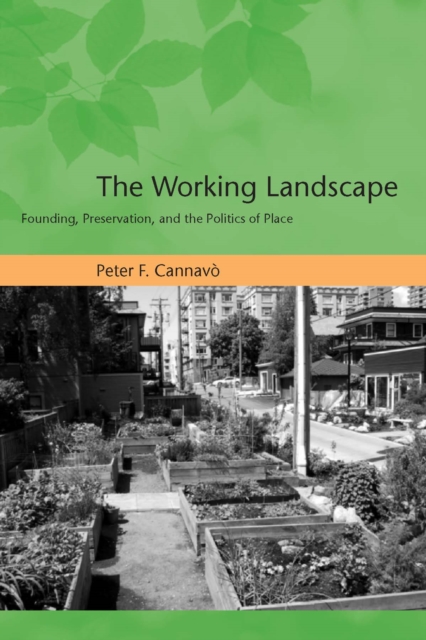
The Working Landscape : Founding, Preservation, and the Politics of Place PDF
by Peter F. Cannavo
Part of the Urban and Industrial Environments series
Description
In America today we see rampant development, unsustainable resource exploitation, and commodification ruin both natural and built landscapes, disconnecting us from our surroundings and threatening our fundamental sense of place. Meanwhile, preservationists often respond with a counterproductive stance that rejects virtually any change in the landscape. In The Working Landscape, Peter Cannavo identifies this zero-sum conflict between development and preservation as a major factor behind our contemporary crisis of place. Cannavo offers practical and theoretical alternatives to this deadlocked, polarized politics of place by proposing an approach that embraces both change and stability and unifies democratic and ecological values, creating a "working landscape."
Place, Cannavo argues, is not just an object but an essential human practice that involves the physical and conceptual organization of our surroundings into a coherent, enduring landscape. This practice must balance development (which he calls "founding") and preservation. Three case studies illustrate the polarizing development-preservation conflict: the debate over the logging of old-growth forests in the Pacific Northwest; the problem of urban sprawl; and the redevelopment of the former site of the World Trade Center in New York City. Cannavo suggests that regional, democratic governance is the best framework for integrating development and preservation, and he presents specific policy recommendations that aim to create a "working landscape" in rural, suburban, and urban areas. A postscript on the mass exile, displacement, and homelessness caused by Hurricane Katrina considers the implications of future climate change for the practice of place.
Information
-
Download - Immediately Available
- Format:PDF
- Pages:448 pages
- Publisher:The MIT Press
- Publication Date:22/06/2007
- Category:
- ISBN:9780262269803
Information
-
Download - Immediately Available
- Format:PDF
- Pages:448 pages
- Publisher:The MIT Press
- Publication Date:22/06/2007
- Category:
- ISBN:9780262269803










